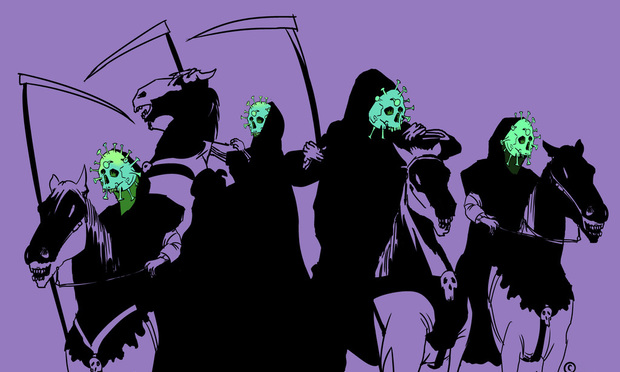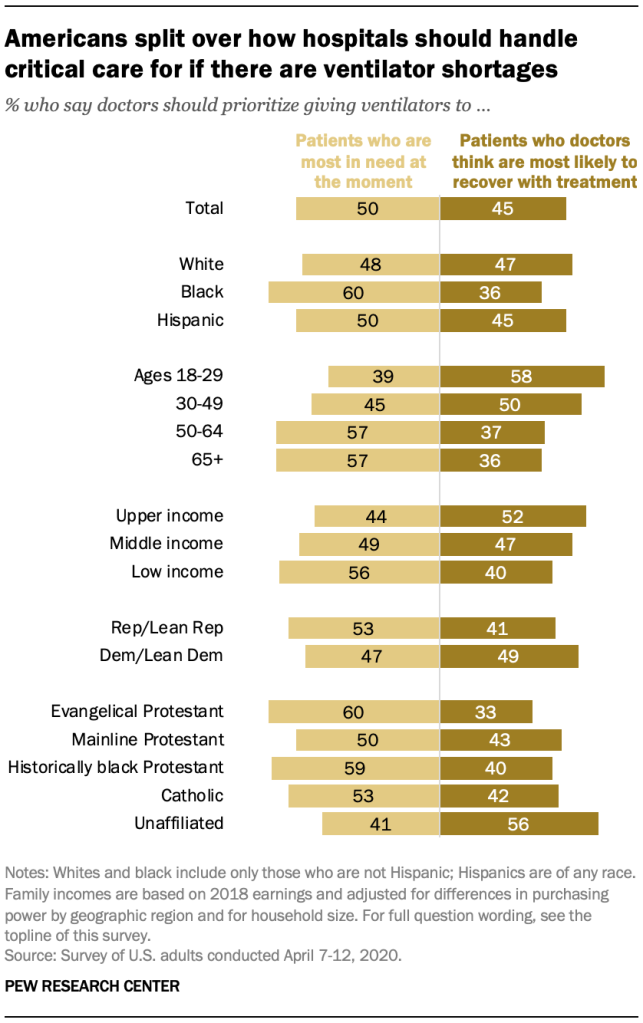The more the coronavirus consumes everyone’s attention, between fears of the disease itself and worries about its upending of the economy, some groups are—as might be expected—more worried than others about various aspects of the situation.
A recent study from the Pew Research Center delved into the specifics of how Americans are responding differently to the treat of the virus. Not only do they differ on whether their fears are focused inward (whether they’ll get the illness themselves) or outward (whether they’ll infect others), but their worries vary based on race, age, income and party—as well as other demographics.
Related: Consumer confidence tanks on coronavirus fears
For instance, while among the general population, 55 percent are worried about having to be hospitalized because of coronavirus, a third of lower-income adults, 61 percent of older adults (age 50 and over), 70 percent of Hispanic adults and 59 percent of black Americans fear hospitalization. Only 39 percent of younger adults (under 30) feel that way, although they’re more worried about spreading the virus to others (72 percent). And only 51 percent of white adults report being concerned about hospitalization, with just 17 percent of higher-income adults worried about it.
When it comes to political affiliations, Republicans in counties with more reported deaths from the coronavirus (31 percent) are approximately twice as likely to be very concerned that they will get the coronavirus and be hospitalized than those in counties where deaths per county can be classified as more moderate (13 percent) or low (17 percent). Democrats, however, don’t vary all that much in their levels of concern based on geographic areas.
When it comes to the priority of care, 50 percent overall say that those who need it most should be given critical care (use of ventilators), while 45 percent say that care should go to those whom doctors feel are most likely to recover with treatment.
But among religious affiliations, 60 percent of evangelical Protestants and those affiliated with historically black Protestant denominations (59 percent) say that the priority should be given to patients based on their need in the moment. In addition, 53 percent of Catholics prioritize those most in need, compared with 42 percent that opt for the people most likely to recover. Among Mainline Protestants, the division is nearly equal, but 56 percent of religiously unaffiliated respondents opt for giving scarce ventilators to the people who are most likely to recover.
NOT FOR REPRINT
© 2024 ALM Global, LLC, All Rights Reserved. Request academic re-use from www.copyright.com. All other uses, submit a request to [email protected]. For more information visit Asset & Logo Licensing.


 Four Horsemen of the Apocalypse, not social distancing but prepared with coronavirus masks.
Four Horsemen of the Apocalypse, not social distancing but prepared with coronavirus masks.





